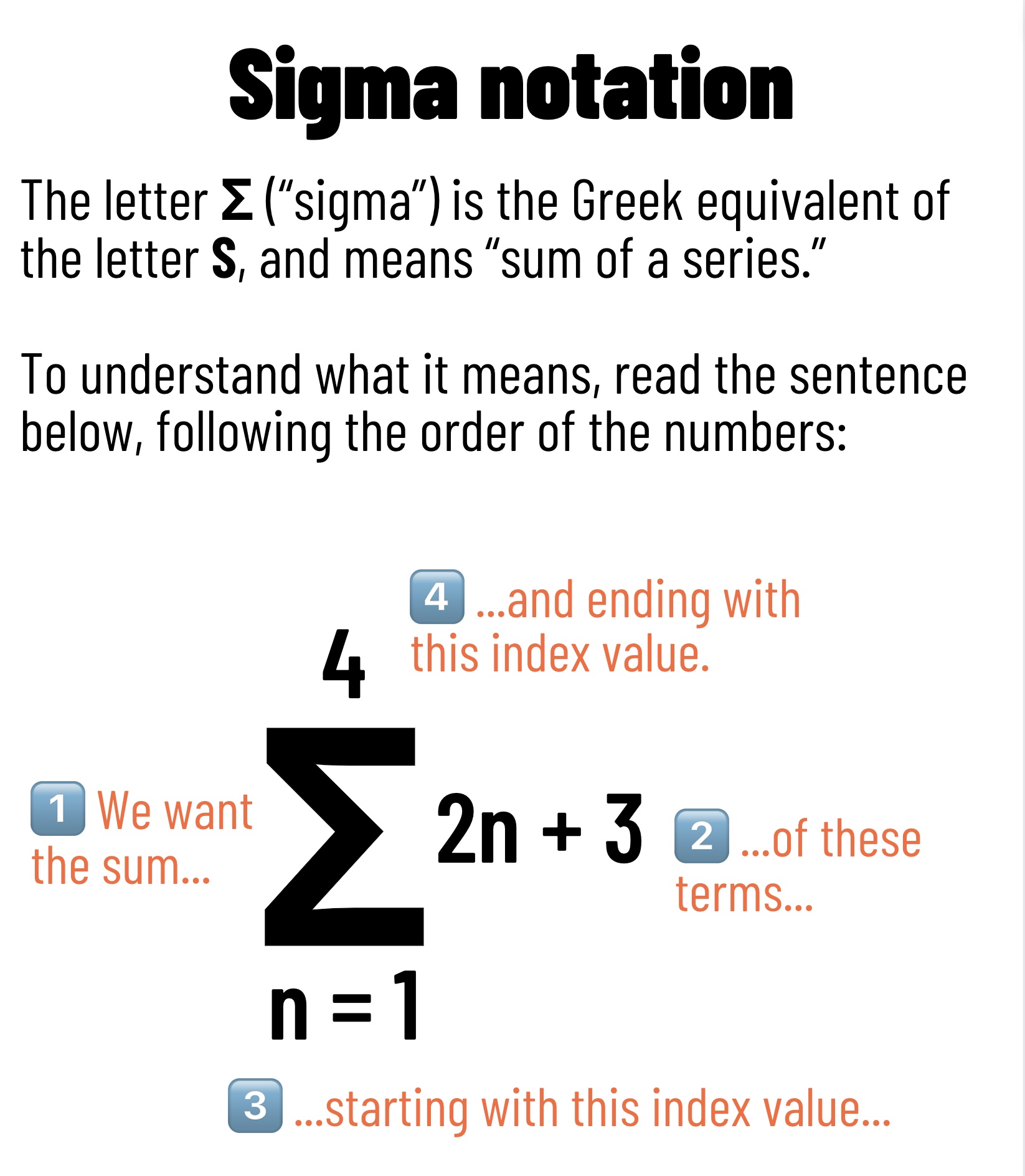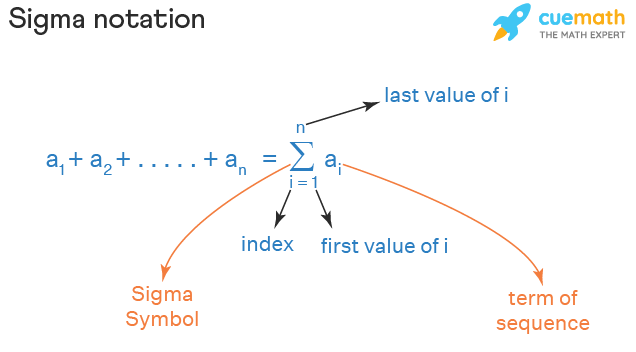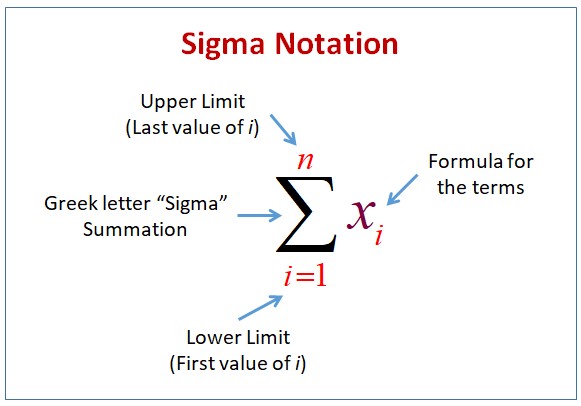Decoding The Sigma Meaning: What It Really Means Today
Have you ever heard someone talk about a "sigma" and wondered just what in the world they were on about? It's a term that, you know, has popped up everywhere lately, from social media feeds to everyday chats among friends. This word, "sigma," seems to be, like, quite the big deal, and many people are curious about its true meaning.
So, what exactly does "sigma" mean, and why is it getting so much attention? It's not just some random internet slang; it actually carries, you know, a pretty interesting set of ideas. For many, it points to a certain kind of person, someone who moves through life a bit differently, perhaps even a little bit against the usual flow.
In this post, we're going to, you know, take a good look at the "sigma meaning." We'll explore where this idea comes from, what kind of person it describes, and why it's become such a common way for people to talk about individuality. You might find that you know someone who fits this description, or maybe, just maybe, it describes a part of you!
Table of Contents
- What is the Sigma Meaning?
- Traits of a Sigma Individual
- The Origins of the Term Sigma
- Why Sigma is a Big Deal Today
- Cultural Relevance and Individuality
- Frequently Asked Questions About Sigma
What is the Sigma Meaning?
When people talk about "sigma" today, it's basically slang for someone who is, you know, pretty cool. But it's not just about being cool in a typical way; it's more about someone who, well, plays by their very own rules. They march to the beat of their own drum, so to speak.
This kind of person is often seen as rebellious, a bit of a free spirit, and very independent. Yet, here's the interesting part: despite their independent streak, they are also, quite often, popular and successful. It's an interesting mix, isn't it?
Originally, the term, you know, referred to "sigma" in a slightly different way. It's a slang word for "the best," or someone who is, you know, a humble alpha male. It suggests a person who is top-tier but doesn't necessarily need to be loud about it or lead a huge group.
A sigma, you see, is someone who, actually, operates independently. They often prefer their own company rather than being in a big crowd of friends. This isn't because they dislike people, but rather because they find comfort and strength in their own space, more or less.
The term, in a way, allows young people to give a name to their individuality. It helps them, you know, describe a feeling of being unique and not always following what everyone else does. It's a label that, arguably, celebrates being different.
So, the "sigma meaning" really points to a person who is strong, successful, and independent, but who also, you know, values their own path. They don't need external validation as much as others might, which is, in some respects, quite admirable.
Traits of a Sigma Individual
A sigma person, you know, shows several distinct traits. One of the most noticeable is their strong sense of independence. They are, quite often, self-reliant and don't need constant input or approval from others to make their choices or, you know, move forward.
They also, very typically, enjoy solitude. This isn't to say they are anti-social; rather, they recharge and find peace when they are by themselves. They might, you know, prefer a quiet evening at home over a loud party, which is, in a way, just their style.
Another key trait is their ability to be successful without, you know, seeking the spotlight. They can achieve great things, but they don't necessarily need to be the center of attention. Their success is often, you know, a quiet kind of triumph.
Sigmas are often seen as, well, quite observant. They tend to watch and listen more than they speak, picking up on details that others might miss. This allows them to, you know, understand situations deeply before acting, which is, in fact, a very useful skill.
They are also, you know, quite adaptable. Because they don't rely on a fixed social structure, they can adjust to new environments and situations with relative ease. They're not tied down by expectations, which gives them, like, a lot of freedom.
Their rebellious nature isn't always about, you know, causing trouble. It's more about questioning norms and doing what they believe is right, even if it goes against the grain. They have, you know, a strong moral compass that guides them, it seems.
And yet, despite all this independence, they can be, you know, quite popular. Their genuine nature and unique perspective can attract people who appreciate authenticity. They don't try to fit in, and that, ironically, makes them stand out, you know?
The Origins of the Term Sigma
The word "sigma" actually has roots that go way back, long before it became, you know, a popular slang term on the internet. It comes from the Greek alphabet, which is, you know, pretty old stuff. In the Greek alphabet, sigma is represented by, you know, a specific letter.
It's the 18th letter of the Greek alphabet, and it has both an uppercase form (Σ) and a lowercase form (σ or ς). It corresponds to the English letter 's'. This letter has, you know, decades of use in classical texts and academic notation, which is, you know, quite a history.
So, when you see sigma in, like, an old book or a science paper, it's probably not talking about a cool, independent person. It's most likely being used in its traditional sense, as a symbol or a letter, which is, you know, its original purpose.
From Greek to Modern Use
The journey of the word "sigma" from its Greek roots to modern internet culture is, you know, quite fascinating. It stands as a complex term that has really evolved. Initially, it was just a letter, a symbol used in math and science, and, you know, in ancient writings.
For example, in math, the uppercase sigma (Σ) is often used to represent, you know, a sum of numbers. In science, the lowercase sigma (σ) can represent, like, standard deviation in statistics, which is, you know, a measure of how spread out numbers are.
The word now, you see, packs multiple meanings across math, science, and social contexts. It's quite interesting how a single term can have such different uses. This evolution shows how language, you know, changes and adapts over time, which is, actually, pretty cool.
The modern "sigma meaning" as a personality type is a relatively new development, driven largely by, you know, social media and online discussions. It's a fresh take on an old word, giving it a completely different kind of life, which is, you know, quite common with slang.
Why Sigma is a Big Deal Today
The term "sigma" has, you know, really taken off, and there are good reasons why it's such a big deal right now. For one thing, it gives people a way to talk about a type of personality that, you know, might not have had a clear label before. It fills a bit of a gap.
In a world where, you know, there's often pressure to fit in or be part of a group, the idea of a "sigma" offers an alternative. It celebrates being different, being self-sufficient, and not needing to follow the crowd, which is, you know, quite appealing to many.
For young people especially, the term allows them to, you know, name their individuality. It's a way for them to say, "I'm cool, but I do things my way," without feeling like they're, you know, being anti-social or weird. It's a badge of honor, in a way.
The rise of the "sigma meaning" also reflects a broader cultural shift. People are, you know, increasingly valuing authenticity and self-reliance. The idea of someone who is successful on their own terms, without needing to lead or follow, really resonates with many, you know, right now.
It's also, you know, a reaction to the more traditional "alpha" and "beta" male concepts. While an "alpha" is seen as a dominant leader and a "beta" as a follower, the "sigma" breaks that mold. They are, you know, outside the hierarchy, which is, actually, quite a refreshing idea.
This outsider status, combined with their success and coolness, makes the "sigma" a very aspirational figure for some. They represent a kind of freedom and self-mastery that, you know, many people seek in their own lives, it seems.
So, the term isn't just a fleeting trend; it taps into deeper desires for independence and self-expression. It gives a name to a type of person who is, you know, strong and capable, but who chooses their own path, which is, arguably, a powerful message.
Cultural Relevance and Individuality
The "sigma meaning" has, you know, certainly become a big part of modern internet culture. It's a concept that people discuss, create memes about, and, you know, identify with. This shows how much it has resonated with a wide audience, which is, you know, quite significant.
It helps people, you know, articulate a certain kind of personality that values personal space and autonomy. In a hyper-connected world, the idea of someone who thrives independently is, perhaps, even more appealing. It's a counter-narrative, in a way.
The term has also, you know, become a shorthand for describing characters in movies, TV shows, and even video games. When a character is, you know, a lone wolf who is skilled and successful but doesn't seek a group, people often label them as "sigma." This helps, you know, make the concept even more widespread.
This widespread use, you know, reinforces the idea that it's okay to be different. It suggests that success and popularity don't always come from being the loudest or the most social person in the room. Sometimes, it comes from, you know, just being yourself, which is, actually, a good message.
The "sigma meaning" is, in essence, a celebration of individuality. It gives a positive spin to being an outsider, suggesting that, you know, being on your own path can be a source of strength and admiration. It's a modern twist on an old idea: the strong, silent type, more or less.
It allows people to, you know, see themselves or others in a new light. It's a way to appreciate those who don't conform, who think for themselves, and who, you know, forge their own way in the world. This kind of self-determination is, you know, something many people look up to.
So, the term "sigma" has, you know, become more than just slang; it's a way to understand and appreciate a certain type of person in our society. It's a cultural marker for those who, you know, prefer to stand apart rather than blend in, which is, you know, quite a powerful idea.
To learn more about personality types on our site, and link to this page .
Frequently Asked Questions About Sigma
People often have questions about the "sigma meaning" and what it all implies. Here are a few common ones, you know, that come up quite a bit.
Is a sigma male better than an alpha male?
Well, you know, it's not really about being "better." Alpha and sigma describe different ways of being. An alpha male is typically seen as a leader, someone who is dominant and takes charge in a group. A sigma male, on the other hand, is independent and operates outside of typical social hierarchies. They are both, you know, strong in their own ways, but they express that strength differently. It's more about, you know, what fits a person's nature rather than one being superior.
Can a woman be a sigma?
Absolutely, you know! While the term "sigma male" is often used, the core traits of independence, self-reliance, and a preference for solitude are not exclusive to any gender. A woman who is, you know, cool, plays by her own rules, is rebellious yet successful, and prefers her own company could very much be described as a "sigma." The qualities are, you know, universal, it seems, even if the slang started with a male focus.
How do you know if you are a sigma?
If you find yourself, you know, strongly relating to the traits we've talked about, you might be a sigma. Do you prefer your own company more often than not? Do you tend to, you know, make your own decisions without much influence from others? Are you successful but don't feel the need to boast or lead a big group? If you value your independence and, you know, operate outside of typical social structures, then you might, you know, just fit the "sigma meaning" pretty well. It's about, you know, how you feel and act in the world.
For more insights, you might find this article on Psychology Today interesting, you know, for a deeper look at the concept.

You want sum of this? (or: What does the Σ symbol mean?) : Global Nerdy

Sigma Notation - Sigma Symbol Math | Summation Notation

Sigma in Statistical Analysis: What You Need to Know - isixsigma.com